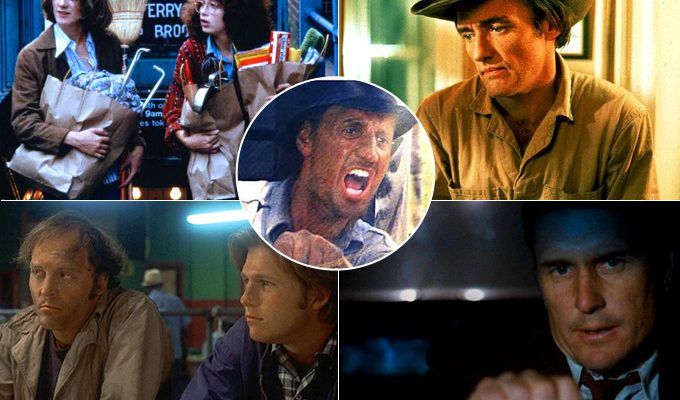
If you’ve had a conversation with a serious cinephile in the last week or so, there’s probably only been one real subject of discussion. Well, once you’ve finished talking about “Heaven Is For Real,” anyway. Tuesday saw the release of a shiny new Blu-ray of the brand new restored version of William Friedkin‘s “Sorcerer.” Long unavailable on home video, Friedkin’s 1977 remake of “The Wages Of Fear” was an expensive flop buried in part by the release of “Star Wars,” but it has only grown in estimation over the years, and after a long legal wrangling, was finally reclaimed by the director last year, and hit stores earlier this week.
This means that one of the holy grails of 1970s American cinema has had its reputation mostly restored; what was dismissed in many quarters on release is now deemed to be one of the director’s finest films, to sit alongside “The Exorcist” and “The French Connection.” But the reevaluation of “Sorcerer” is only the tip of the iceberg: as one of the most celebrated decades in the history of the medium, there are plenty more relatively undiscovered classics where that came from.
Not everything can be “The Godfather” or “Nashville,” and so for every ’70s movie that won the acclaim they deserved, there’s another that was overshadowed or undersung, and is somewhat forgotten these days. In celebration of the release of “Sorcerer,” we’ve picked out ten other films from the 1970s that we love, but aren’t as widely known as they should be, in the hope that a reevaluation of the kind that Friedkin’s film has had might be forthcoming. Read our ten picks below — which are admittedly random and perhaps subjective, but hopefully off the beaten path enough to pique your interest — and pick your own favorites in the comments section below.

“Wanda” (1970)
Like Charles Laughton‘s “Night Of The Hunter,” “Wanda” belongs to the tiny sub-category of great directorial outings by actors who only helmed the one picture. Sadly, it’s nowhere near as well-known as Laughton’s masterpiece, but it certainly deserves to be. Barbara Loden was best known for her Broadway roles and a part opposite Warren Beatty in “Splendor In The Grass” (directed by her husband, Elia Kazan), but “Wanda” is sort of borderline revolutionary, a remarkable drama that presages contemporary independent cinema by several decades. Loden also takes the title role of a fading beauty in a Pennsylvania mining town who abandons her life to hook up with a bank robber. It feels like something of a parallel life for her — she hailed from a North Carolina background, and said in an interview “If I had stayed there, I would have gotten a job at Woolworth’s, I would’ve gotten married at 17 and had some children, and would have got drunk every Friday and Saturday night.” The result is like a European arthouse take on a Douglas Sirk film, meditative and bruising, with Loden the almost inscrutable and passive center of events. It carefully and compellingly walks the line between docu-drama realism and something more experimental (it feels like an obvious precursor to the modern slow cinema movement, and will test less patient viewers as a result). It’s a fascinating film about a fascinating woman (as much a rarity in the 1970s as it is now), and it’s a crying shame that Loden didn’t make a follow-up before her premature death from breast cancer in 1980.

“Martin” (1978)
George Romero’s obviously best-known for his pioneering ‘Dead’ series of zombie films, most notably 1968’s “Night Of The Living Dead” and 1978’s “Dawn Of The Dead.” But Romero’s own favorite of his pictures is one that doesn’t have anywhere near the same kind of genre-changing reputation, in the shape of lo-fi horror “Martin.” And he might be right to consider it his best film. Romero abandons zombies to dig into, for the only time in his career, the vampire mythos, but it’s not quite that simple. The film centers on John Amplas’ title character, a young man who claims to be a vampire. Romero never includes any supernatural elements, and keeps it deliberately ambiguous as to whether that’s the case, or whether Martin is simply psychotic. The result is the most grounded genre film he ever made, and probably as a result, it might be his most terrifying: the psychology of the character, complete with a troubled relationship to sexuality and a powerful ego, seems drawn more from real-life serial killers than from Bram Stoker’s Count and his like. And yet Martin is curiously sympathetic too: Amplas’ finely tuned performance embodies a certain kind of adolescent desperation even as he’s draining blood from his victims. The film’s arguably limited by its budget in places, but the social satire and top-notch filmmaking of Romero’s Dead trilogy remains here in spades. “Let The Right One In,” among many others, simply wouldn’t exist without this one.

